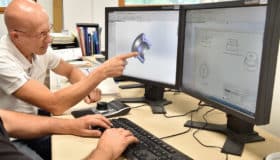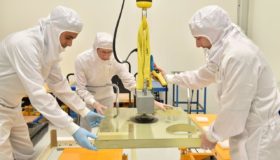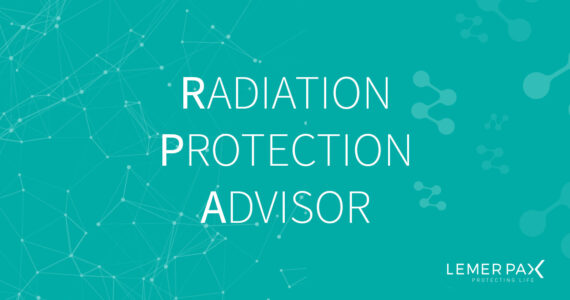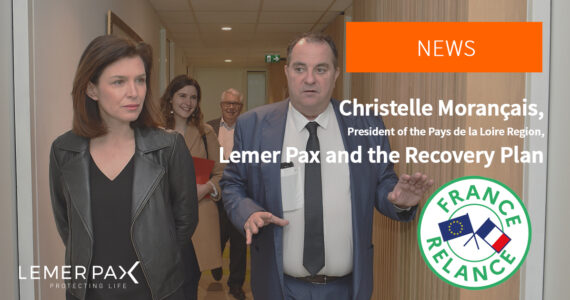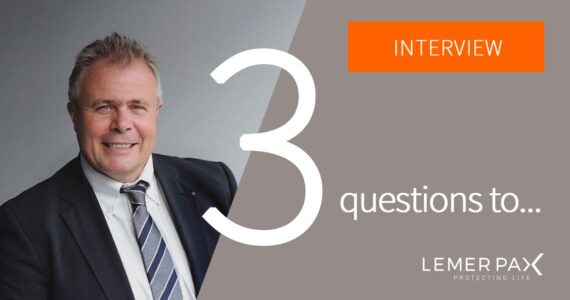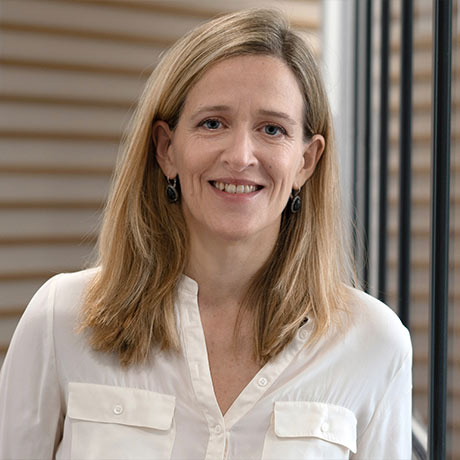
3 questions for … Cécile Arbouille, Senior Executive Advisor, Nuclear Generation Division / EDF
Cécile Arbouille has devoted her career to EDF. After heading up Procurement Strategy then Supplier Risks under the Grand Carénage Programme (aimed at enhancing nuclear safety and extending reactor lifetimes), she was appointed as the first Chief Executive at GIFEN (the trade association representing the French Nuclear Industry), founded in 2018.
She held this high-profile position, with wholehearted dedication from 2018 to 2022. She is guided by the sector’s industrial policy, in the firm belief that the wealth and diversity of the community can give a fresh boost to the French nuclear industry.
Today, as Senior Executive Advisor at EDF, Nuclear Generation Division, in charge of Industrial Policy and Supplier Relations, she has a central role to play in the challenge of ensuring the secure, available and cost-effective operation of France’s fleet of nuclear power plants.
You began your career working with technical questions. You then tackled industrial policy before taking the helm at the newly established trade association, GIFEN. What do you remember most about this experience?
Yes, when I started at EDF, I worked with technical aspects. From 2012, I moved onto industrial policy issues, and continued to address them in a logical fashion at the helm of GIFEN where I spent a little over four years. What I remember most about this period was the firm belief, which still drives me, that the sector needed a structured organisation empowering it to be able to better address the challenges to come. And the challenges are, indeed, huge.
For EDF, the construction of new reactors and extension of existing reactors’ lifetimes, as well as the CEA (French Alternative Energies and Atomic Energy Commission) and Orano with their own projects, defence, the shipbuilding sector, and of course consolidating a sector of suppliers, equipment manufacturers and subcontractors. So that’s right, the way ahead is fraught with challenges, but the road map is clear, set out by the French President during his speech at Belfort on 10 February 2022: The great adventure of civil nuclear power in France must be continued. We face an industrial and human challenge in which GIFEN has its part to play, in this process of restructuring and remobilisation. This is a long-term endeavour. The situation of the past 25 years was very different. The fleet was operated with a 30-year lifetime in mind, with no clear outlook after that. Everything has changed today, and at a personal level I truly believe in the meaningful purpose of this mission at GIFEN at the heart of the sector’s diversity and wealth. This is something which gives me hope for the future.

Today, at EDF, you are Senior Executive Advisor for Industrial Policy and Supplier Relations in the Nuclear Generation Division. In an environment which has changed a great deal over the past few months, what are the priorities as regards this new challenge?
I work with Hubert Catalette, the new Maintenance Director at the Nuclear Generation Division headed up by Etienne Dutheil, who wanted to redefine the way maintenance of plants is managed. He also sits on GIFEN’s Governing Board. This new Maintenance Division is tasked with defining how we do this, and with whom, whilst continuing to uphold the requirements of maintaining the qualification of our industry. Do we do this redefinition internally, with the Logistics & Maintenance Unit (ULM), and/or externally, with maintenance operations run by a supplier? This is what we need to consider, in order to find the best solution. Our aim is to continue generating high-quality, safe nuclear power.
As for the construction of new plants, in France and abroad, with the new EPRs, this concerns the division led by Xavier Ursat, Corporate Executive Director in charge of the New Nuclear Project Engineering Division. At the Nuclear Generation Division, we are in charge of operations, i.e. effectively running the French fleet of nuclear power plants. Generating electricity safely and cost-effectively – that’s our mission. We also need to extend the lifetime of plant units. Maintenance operations must therefore be adjusted in terms of 50- or even 60-year lifetimes, while further improving the safety standards and reducing the length of time reactors go offline for maintenance. In 2022, our experts were very busy analysing the stress corrosion phenomenon observed at several sites. Our priority has been to identify the cause of these anomalies, so that we can resume normal operations after conducting the necessary maintenance operations as promptly as possible, always with safety uppermost in our minds. Our industry is one of the most closely monitored in the world, under the oversight of the French Nuclear Safety Authority (ASN), as well as via measures conducted at the World Association of Nuclear Operators (WANO), which ensures safety at a global level through peer reviews, a common safety framework and exchange of best practices.
Generating electricity safely and cost-effectively – that’s our mission.
How can we rally the industry as a whole, SMEs especially, round this revival of nuclear power, whilst attracting the younger generation?
Given the scale of the task ahead, we need a structured and efficient community. Generating low-carbon electricity within local areas, to drive forward the energy transition and turn nuclear power into a competitive energy source, strikes me as a commendable challenge to take up. For the major environmental priority today is to lower CO2 emissions. The appeal of industry in general has been waning since the 1980s in favour of services. But nuclear power is a tool to help combat global warming. This argument is beginning to resonate with young graduates.
I feel confident about recruitment, because I’ve found that the nuclear workforce is loyal to the sector. We have arguments, in terms of training and added value in the workplace, to attract outstanding professionals who can relate to the objectives we offer them. SMEs have a vital role to play. Let me remind you that they account for 85% of the sector in terms of number of companies! They bring flexibility, excellence and energy. But in the future, as part of the process, criteria in terms of skills, innovation and digitisation will certainly be revised upwards. This is because, if we are to meet the productivity targets, we need businesses that will allow us to be operational and effective, and to work faster, not least by reducing the lengths of time reactor units go offline. This is a key challenge for the Nuclear Generation Division. Getting it right first time implies, upstream, delivering the right training programmes and an effective industrial tool. France’s energy independence and the fight against global warming depend on this.
